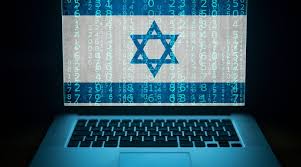Israel Upgrades Cyber Shield to Face Iranian Threats
In a bold step to reinforce national security amid fragile ceasefire negotiations, Israel’s National Cyber Directorate announced on June 24 a significant overhaul and upgrade of its cyber-defense capabilities. The move reflects a broader effort by the Israeli government to prepare for the digital front of modern warfare, particularly in anticipation of potential cyberattacks originating from Iran or its affiliated proxy groups.
The upgrade comes at a critical time, as Israel and Iran navigate an uneasy ceasefire following weeks of heightened military exchanges. While the conflict has entered a tentative de-escalation phase, Israeli officials remain wary of retaliatory action in the cyber domain—a battleground where both nations have previously clashed.
Central to Israel’s enhanced cybersecurity initiative is a focus on protecting the country’s critical infrastructure. Newly deployed detection and prevention systems have been embedded within industrial control systems (ICS) tied to the nation’s power grid, water supply, and telecommunications networks. These assets, particularly vulnerable in regions bordering Lebanon and Gaza, are considered primary targets in the event of cyber escalation.
The Cyber Directorate also introduced stringent new inspection protocols for defense contractors. These measures are aimed at identifying latent malware and mitigating risks within the national defense supply chain. According to officials, these inspections form a proactive buffer against potential supply-chain attacks that could compromise sensitive military or governmental operations.
Israel’s cyber upgrade initiative has not unfolded in isolation. The country is closely collaborating with the U.S. Cyber Command, exchanging real-time threat intelligence and aligning digital defense postures. This partnership integrates advanced analytics and situational awareness tools capable of detecting, tracking, and neutralizing cyber threats before they manifest. Joint drills and intelligence coordination serve as a deterrent to coordinated campaigns by Iranian actors or allied cyber militias.
Another cornerstone of the initiative involves the integration of artificial intelligence (AI) into Israel’s cybersecurity framework. Working alongside international technology firms, Israeli cyber units are deploying AI-driven intrusion detection systems designed to preempt multi-vector cyber offensives. These systems can analyze massive datasets at unprecedented speeds, providing early warning signals and automating responses to evolving threats.
In a move to strengthen public-private cooperation, Israel is also enabling critical infrastructure operators, such as utility and transportation companies, to interface directly with national cybersecurity command centers. This connectivity ensures rapid incident reporting and real-time response coordination in the event of cyberattacks. Furthermore, cybersecurity awareness training and simulation drills are being rolled out to infrastructure employees, focusing on hypothetical threat scenarios, including Iranian-sponsored cyber warfare.
Security experts and academia have welcomed the initiative as a necessary evolution in Israel’s defense strategy. Pro-Israel cybersecurity researchers highlighted the need for resilience against state-level digital aggression, especially given Iran’s documented cyber campaign history—notably attacks like Shamoon, which crippled key sectors in neighboring Gulf states.
Though no large-scale cyber incidents were recorded on June 24, Israeli officials emphasized that the current upgrades are preemptive. Their goal is to position Israel several steps ahead of any adversarial activity, particularly should the ceasefire falter or regional tensions escalate again.
International cybersecurity watchdog ISC2 commended the Israeli effort, suggesting it could serve as a global benchmark for securing critical infrastructure in high-risk zones. However, human rights organizations issued a note of caution. They warned that expanded cyber-monitoring capabilities, if unchecked, could potentially infringe on civil liberties, especially with respect to digital surveillance and data privacy.
From a market perspective, the announcement had a stabilizing effect, even though it did not produce significant immediate movement in financial indicators. Analysts believe that cyber resilience contributes indirectly to investor confidence, particularly in high-risk regions. A successful cyberattack on Israel’s energy or banking infrastructure, they note, could have wide-ranging implications for regional equity and currency markets. By mitigating that risk, Israel’s digital fortification is viewed as a sound component of economic and national risk management.
Ultimately, Israel’s upgraded cyber-defense infrastructure underscores its multidimensional approach to national security in the digital era. As ceasefire negotiations continue and global tensions remain high, this initiative reflects the country’s commitment to safeguarding not only its physical borders but also its digital frontlines. Whether or not the current peace holds, Israel is positioning itself as a cyber-resilient state capable of weathering the invisible yet potent storms of cyber warfare.
News Source: https://www.reuters.com/world/middle-east/israel-boosts-cyber-defenses-amid-israel-iran-tension-2025-06-24/








